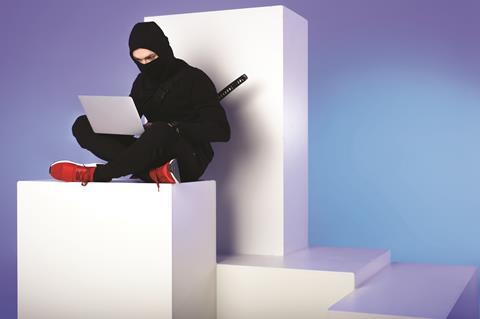Many companies have experimented with remote working, but few have gone as far with the idea as Exposure Ninja. Although the digital marketing agency is technically based in Nottingham, in reality the company of 89 employees has had no physical workplace for the last four years.

Property Week caught up with Samantha Lyon, deputy head of content marketing at Exposure Ninja, to get her take on how remote working can improve employees’ lives, why more companies don’t do the same and how to create a strong company culture when employees rarely meet face to face.
Why did Exposure Ninja decide to go 100% remote?
We have globetrotters and adventurous souls working for us at Exposure Ninja. They can work while indulging their passion for travel, which ultimately makes them happier, more engaged and more loyal.
It has also allowed us to recruit some fantastic people whose commitments at home wouldn’t allow them to work in an office job – stay-at-home parents, for example, who often have great experience and a finely tuned organisational streak.
It’s also the best time for a remote company to flourish. We have all the tools and software we need to communicate and collaborate. We can use [chat software] Slack to maintain the feel and atmosphere of a close-knit workplace. We can use [task management software] Teamwork to assign and track tasks and [screen monitoring tool] Hubstaff to keep track of employee hours. It all happens like clockwork, and we wouldn’t have it any other way.
Why do you think more companies don’t do the same?
For many companies it is a practicality issue – some businesses believe that they simply can’t operate remotely. Through habit, some might spend a lot of time in face-to-face client meetings, which means it is easier and more efficient for those companies to work in an office.
Through conversations I’ve had myself with chief executives and managers, I’ve seen there is some concern that if they allow their employees to work remotely, workers would inevitably slack off or be less productive. Some managers are concerned that if they can’t keep an actual eye on their employees, liberties will be taken. However, research shows this is not the case.
Do you think remote working can work for any business?
I think it can work for most businesses, but not all. There are obvious examples – a restaurant wouldn’t work well remotely. Online shopping is more popular than ever, and the high street is suffering as a result. Most retail businesses still have a physical storefront, so they can’t be entirely remote, but their customer service could be and often is.
While there are many reasons companies can’t go remote, some are just excuses rather than legitimate reasons. The reduction in physical meetings is one area that some clients question when they find out we’re 100% remote. However, once we’ve done a few Skype meetings and they’ve ‘met’ the team online, those fears disappear and they can see the benefit of not having to travel three hours for a meeting that might only last 20 minutes.
Will Exposure Ninja still be a remote-working business in five years?
Exposure Ninja will definitely be a remote-working business in five years. It works for us and we have grown significantly over the years using this model. Changing the way we do things would mean saying goodbye to our top performers, as it would be impractical for them to uproot their lives and relocate.
We experimented once with a physical office, but the experiment lasted only six months, as our productivity and happiness, which we tracked, had fallen. We keep a physical office space in Nottingham ‘just in case’, although it is used very infrequently.
How do you feel about claims that remote working stymies collaboration or creates loneliness?
I think it’s true that some people suffer from loneliness while working remotely – remote work will not be for everyone for this reason. Some remote employees stave off loneliness by working in collaborative workspaces or places such as cafés .
There are ways remote companies can promote communication and sociability, however. At Exposure Ninja, we use Slack to allow for real-time feedback and conversation. We have a ‘water cooler’ channel where employees get to know one another and have a chat between tasks – just like if you were standing around the water cooler in a physical office. We also have fun channels relating to our interests, such as a film and TV channel, a book club and a vegan club. We’re always chatting, helping each other out and even, on occasion, having a bit of a moan.
In regard to collaboration, it is simply not the case that remote working stymies collaboration. Given the right tools and software, collaboration is easy and straightforward. Collaboration is all about company culture and values – it doesn’t matter whether you work in an office or at home.





























No comments yet